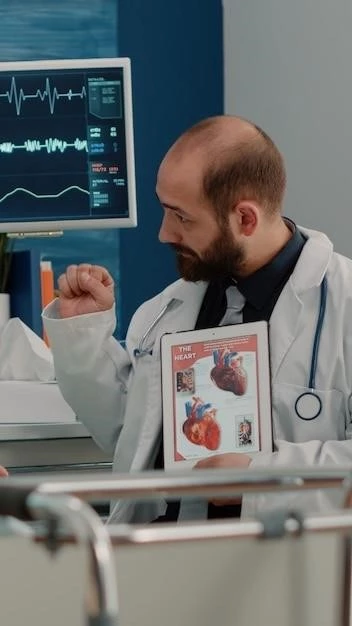Understanding Cardiofacial Syndrome
Gain insights into cardiofacial syndrome to better understand its complexities and management.
Definition of Cardiofacial Syndrome
Cardiofacial syndrome is a rare genetic condition characterized by a combination of heart defects and facial abnormalities. Understanding the intricacies of this syndrome is crucial for effective management and support.
Symptoms of Cardiofacial Syndrome
Recognizing the symptoms of cardiofacial syndrome, such as congenital heart defects and distinct facial features, is crucial for early intervention and management. Seeking medical advice for a comprehensive evaluation can lead to timely treatment and support for individuals with this complex condition.
Management of Cardiofacial Syndrome
Implementing effective treatment strategies and a multidisciplinary approach is essential for managing cardiofacial syndrome.
Treatment Options
Exploring various treatment options, including surgical interventions, medications, and therapies, is crucial for managing the diverse aspects of cardiofacial syndrome. Consulting with healthcare professionals can help determine the best course of action tailored to individual needs.
Multidisciplinary Approach
Collaborating with a team of specialists, including cardiologists, geneticists, orthopedic surgeons, and therapists, is essential for comprehensive care in managing cardiofacial syndrome. This holistic approach ensures coordinated treatment and support for individuals with this complex condition.
Causes of Cardiofacial Syndrome
Understanding the genetic and environmental factors contributing to cardiofacial syndrome is crucial.
Genetic Causes
Exploring the underlying genetic abnormalities and inheritance patterns associated with cardiofacial syndrome is essential for understanding the condition’s origin and potential hereditary risks. Genetic counseling and testing can provide valuable insights for individuals and families.
Environmental Factors
Understanding the potential influence of environmental factors on the development of cardiofacial syndrome is vital. By recognizing how external elements may interact with genetic predispositions, healthcare providers can offer tailored interventions and support to manage the condition effectively.
Cardiofacial Syndrome Research Updates
Stay informed about the latest studies and findings in cardiofacial syndrome for advancements in care.
Current Studies and Findings
Keeping abreast of ongoing research and recent discoveries concerning cardiofacial syndrome can provide valuable insights into potential treatment advancements and care strategies. Stay engaged with scientific developments to optimize support for individuals affected by this condition.
Future Directions
Looking ahead, the future of cardiofacial syndrome research holds promise for innovative treatment approaches and improved outcomes. By supporting and participating in research initiatives, we can contribute to a brighter future for individuals with this complex condition.
Cardiac Complications in Cardiofacial Syndrome
Learn about the types and treatments of cardiac complications in cardiofacial syndrome.
Types of Cardiac Complications
Understanding the various cardiac complications associated with cardiofacial syndrome, such as congenital heart defects and structural abnormalities, is essential for tailored treatment plans and proactive management. Consult with healthcare professionals to address specific cardiac needs effectively.
Treatment Approaches for Cardiac Complications
Discussing various treatment approaches, including surgeries, medications, and cardiac interventions, is crucial for addressing the complex cardiac complications in cardiofacial syndrome. Collaborate with cardiovascular specialists to devise a personalized treatment plan tailored to individual needs.
Orthopedic Interventions for Short Limbs
Explore surgical and non-surgical options for addressing limb length differences in individuals.
Surgical Procedures
Consider surgical interventions such as limb lengthening or correction procedures for addressing short limb conditions effectively. Consult with orthopedic specialists to explore the most suitable surgical options and obtain personalized recommendations for the best outcomes.
Non-Surgical Interventions
Explore non-surgical approaches such as physical therapy, assistive devices, and orthotic interventions for managing short limb conditions in individuals with cardiofacial syndrome. Collaborate with healthcare providers to develop personalized non-invasive strategies to improve mobility and quality of life.

Genetic Factors in Cardiofacial Syndrome
Understanding inheritance and genetic testing is key to addressing cardiofacial syndrome’s underlying genetic causes.
Inheritance Patterns
Understanding the inheritance patterns of cardiofacial syndrome is crucial for assessing the risk of transmission to future generations. Genetic counseling can provide guidance on family planning decisions and offer support in navigating the complexities of hereditary factors associated with the syndrome.
Genetic Testing
Consider genetic testing to identify specific genetic mutations linked to cardiofacial syndrome. This can help provide a clearer diagnosis, inform treatment decisions, and offer valuable information for family members regarding potential genetic risk factors.
Supportive Care for Individuals with Cardiofacial Syndrome
Discover the importance of psychosocial support and therapy for comprehensive care in cardiofacial syndrome.
Psychosocial Support
Seeking psychosocial support can help individuals with cardiofacial syndrome cope with emotional challenges and improve overall well-being. Connecting with support groups and mental health professionals can provide valuable resources and strategies for managing the psychological aspects of the condition.
Therapy and Rehabilitation
Engage in therapy and rehabilitation programs tailored to address physical and developmental needs in individuals with cardiofacial syndrome. These interventions can enhance mobility, strength, and overall functioning while promoting independence and quality of life. Collaborate with healthcare providers to develop personalized therapy plans.
